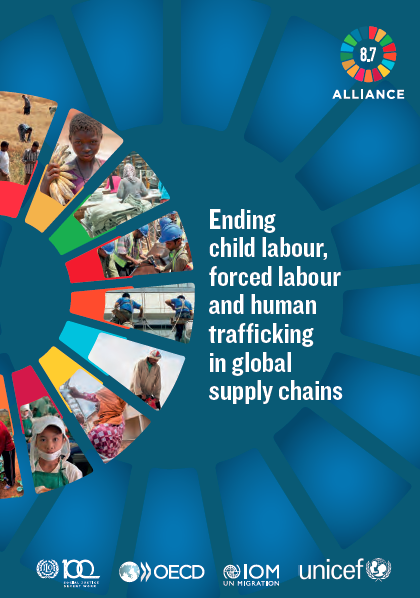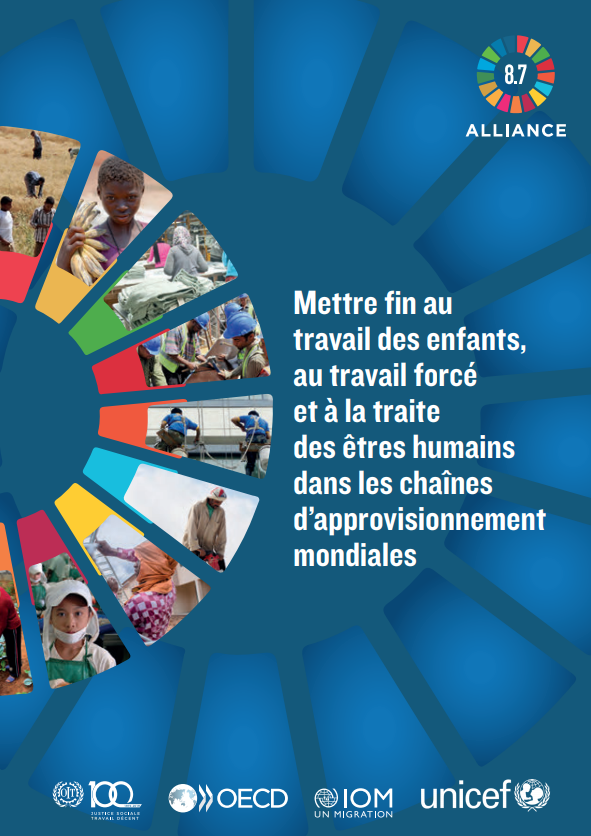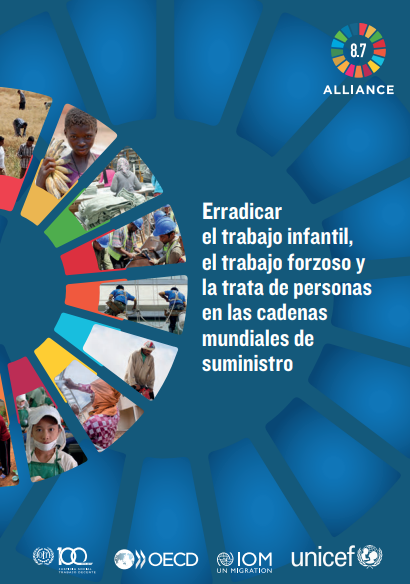The report aims to presents research findings and recommendations on child labour, forced labour and human trafficking in global supply chains. Jointly authored by the ILO, OECD, IOM and UNICEF under the aegis of Alliance 8.7, the report also represents the first ever attempt to measure these human rights abuses and violations on a large scale.
The report is divided into two parts:
PART 1, Understanding child labour, forced labour and human trafficking in global supply chains, presents empirical evidence on the prevalence of and risk factors related to child labour, forced labour and human trafficking linked to global supply chains. In particular, it looks at how, in the absence of strong law enforcement, the socio-economic vulnerability of individuals and workers, along with economic and commercial pressures facing suppliers within global supply chains, can in combination lead to abuses.
PART 2, Responding to child labour, forced labour and human trafficking in global supply chains, provides two policy perspectives. On the one hand, it provides a comprehensive overview of the State’s duty to regulate and implement legal frameworks to protect workers and mitigate the vulnerability to abuse, and to provide access to remedies with good practices and policy tools; and, on the other hand, it presents the necessary smart policy mix to facilitate and incentivize responsible business conduct in global supply chains.



